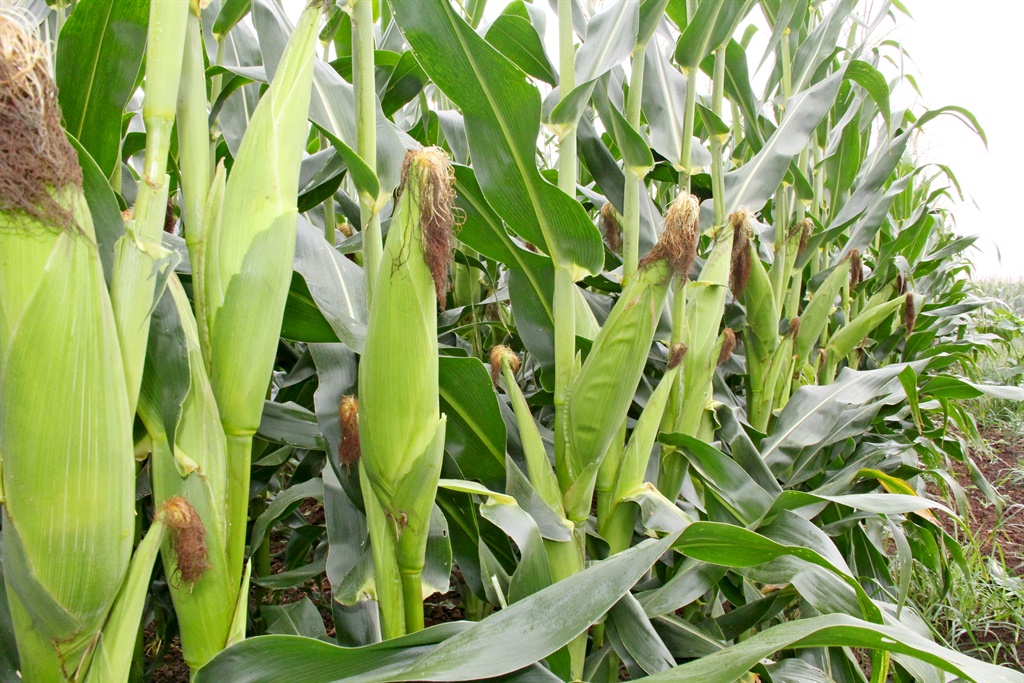Average to above normal rains for southern, central Africa, but delays to affect maize maturity
Lenin Ndebele in Zimbabwee

African countries are facing possible problems with maize production.
- Southern and central Africa to receive normal to above-normal rains, raising the possibility of a bumper harvest.
- But a dry spell is set to continue into December and late rains could affect maize maturity.
- Madagascar, hardest hit by climate change, to get below-average rains.
Despite a delayed start to the rainy season, southern Africa and parts of central Africa are set to receive normal to above-normal rains, the Food Security Early Warning (FSEW) system says.
The primary staple crop in Southern Africa, maize, was mostly planted and nurtured through rains in warm weather temperatures.
As such, the forecast weather was favourable for what the FSEW said would be a “favourable agriculture season”.
“Seasonal forecasts indicate enhanced chances of normal to above normal seasonal rainfall totals, raising the possibility of a second consecutive favourable agricultural season for central, southern and eastern areas,” the report stated.
READ | Southern African countries facing serious heatwave
This past season, southern African countries registered good harvests. In Zimbabwe, a report by the country’s Second Crop and Livestock Assessment said maize production reached 2.7 million tonnes, triple that of the 2020 harvest.
The government then banned maize imports, while Zambia got 3.62 million tonnes, about 7% higher than the 2020 figures. As such, there were requests for maize, particularly from Burundi and the Democratic Republic of Congo.
But the story could turn out differently for countries that had recorded below normal pre-rainy season showers. They would in all likelihood have a delayed cropping season.
“In most areas, early-season rainfall in October and early November facilitate agricultural land preparation and planting. Below-average early-season rainfall that has been experienced so far in Angola, Lesotho and parts of Madagascar and parts of Tanzania, is likely to delay land preparation and planting in some areas,” the report stated.
READ | Law professor detained in Ethiopia
Delays could result in a maize crop that would struggle to reach full maturity.
“Parts of central Madagascar have experienced a delay in the onset of rainfall by up to 30 days, and this delay in rainfall is getting longer as the first rains had not yet occurred by mid-November.
“Parts of Tanzania and northeastern Zambia are also experiencing ongoing delays in planting rains of 10 to 20 days. Extended delays in the onset may negatively affect the crop’s ability to reach maturity,” the report stated.
In Madagascar, the hardest-hit country by climate change in southern Africa, the rainfall was expected to be near average. This meant that the country would need relief aid until 2023.
The Regional Symposium on the Impact of Climate Change and Humanitarian issues seminar held in Victoria Falls Zimbabwe, this week noted that delays in rains were a climate change issue. But there’s no uniform plan to deal with natural disasters.
Concerns were raised that cyclones might approach early next year and go deeper into the continent from the Indian Ocean in a manner that could potentially impact land negatively.
The News24 Africa Desk is supported by the Hanns Seidel Foundation. The stories produced through the Africa Desk and the opinions and statements that may be contained herein do not reflect those of the Hanns Seidel Foundation.
